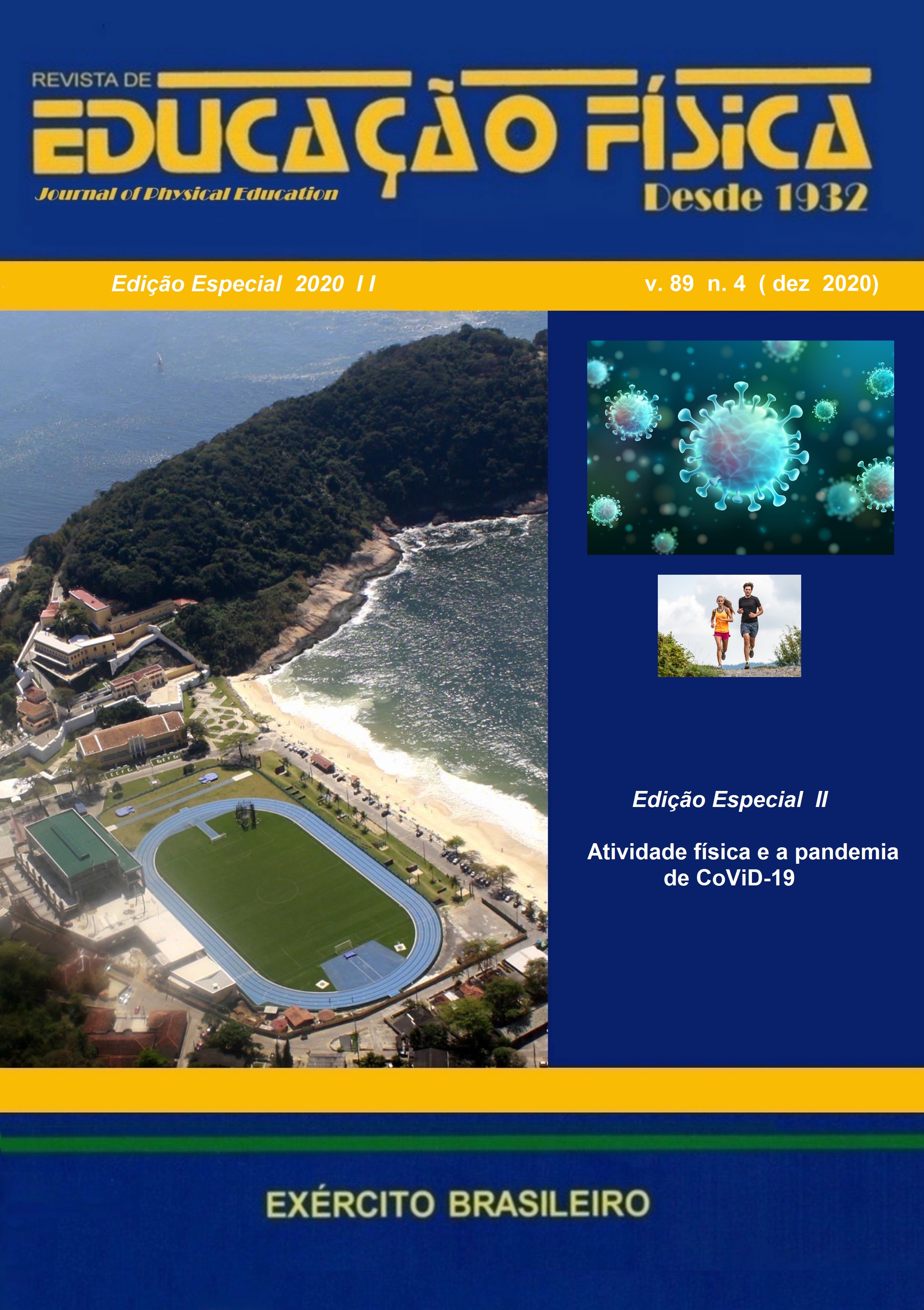Abstract
Introduction: As part of the Special Edition 2020 I, the Revista de Educação Física / Journal of Physical Education (REF/JPE) brings scientific aspects of the practice of physical activity related to the CoViD-19 pandemic.
Objective: To present and refer to REF / JPE readers, the reading of Butler and Barrientos' commentary, published in an international journal, on the effects of inadequate dietary intake over the immune system and implications for CoViD-19.
Conclusion: The adoption of healthier dietary intake is of fundamental importance to favor the immune response. In obese people, the adoption of an adequate diet presents rapid anti-inflammatory effect. Thus, the relevance of the nutritional aspect is emphasized, especially in individuals at increased risk for more severe CoViD-19. Reading of the article is recommended.
References
Stadler K, Masignani V, Eickmann M, Becker S, Abrignani S, Klenk H-D, et al. SARS--beginning to understand a new virus. Nature Reviews. Microbiology. [Online] 2003;1(3): 209–218. Available from: doi:10.1038/nrmicro775
Huang C, Wang Y, Li X, Ren L, Zhao J, Hu Y, et al. Clinical features of patients infected with 2019 novel coronavirus in Wuhan, China. Lancet (London, England). [Online] 2020;395(10223): 497–506. Available from: doi:10.1016/S0140-6736(20)30183-5
Liu S-L, Saif L. Emerging Viruses without Borders: The Wuhan Coronavirus. Viruses. [Online] 2020;12(2). Available from: doi:10.3390/v12020130
Butler MJ, Barrientos RM. The impact of nutrition on COVID-19 susceptibility and long-term consequences. Brain, Behavior, and Immunity. [Online] 2020;87: 53–54. Available from: doi:10.1016/j.bbi.2020.04.040
Green DJ, Maiorana A, O’Driscoll G, Taylor R. Effect of exercise training on endothelium-derived nitric oxide function in humans. The Journal of Physiology. [Online] 2004;561(Pt 1): 1–25. Available from: doi:10.1113/jphysiol.2004.068197
Rogero MM, Calder PC. Obesity, Inflammation, Toll-Like Receptor 4 and Fatty Acids. Nutrients. [Online] Multidisciplinary Digital Publishing Institute; 2018;10(4): 432. Available from: doi:10.3390/nu10040432
Mesquita Júnior D, Araújo JAP, Catelan TTT, Souza AWS de, Cruvinel W de M, Andrade LEC, et al. Sistema imunitário - parte II: fundamentos da resposta imunológica mediada por linfócitos T e B. Revista Brasileira de Reumatologia. [Online] Sociedade Brasileira de Reumatologia; 2010;50(5): 552–580. Available from: doi:10.1590/S0482-50042010000500008
Qin C, Zhou L, Hu Z, Zhang S, Yang S, Tao Y, et al. Dysregulation of Immune Response in Patients With Coronavirus 2019 (COVID-19) in Wuhan, China. Clinical Infectious Diseases: An Official Publication of the Infectious Diseases Society of America. [Online] 2020;71(15): 762–768. Available from: doi:10.1093/cid/ciaa248
- Autores mantém os direitos autorais e concedem à revista o direito de primeira publicação, com o trabalho simultaneamente licenciado sob a Licença Creative Commons Attribution que permite o compartilhamento do trabalho com reconhecimento da autoria e publicação inicial nesta revista.
- Autores têm autorização para assumir contratos adicionais separadamente, para distribuição não-exclusiva da versão do trabalho publicada nesta revista (ex.: publicar em repositório institucional ou como capítulo de livro), com reconhecimento de autoria e publicação inicial nesta revista.
- Autores têm permissão e são estimulados a publicar e distribuir seu trabalho online (ex.: em repositórios institucionais ou na sua página pessoal) a qualquer ponto antes ou durante o processo editorial, já que isso pode gerar alterações produtivas, bem como aumentar o impacto e a citação do trabalho publicado.
